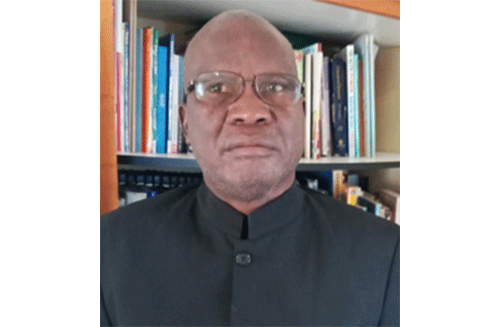In 1990, there was euphoria of achieving nationhood after many years of oppression and racial discrimination from the South African government.
There were high hopes from all walks of life that things will be better and all suffering would be a thing of the past.
The happiest people at that time were those who came back from the liberation war with their lives after experiencing the real joys of war, especially dancing with the barrels of bazooka and AK47.
From that year up to now, every politician during the commemoration of Independence sings the praises of the heroes and heroines who led the liberation struggle and ushered in a period of peace and stability.
Quite surprisingly, none of them seem to hint to the fact that there is an illusive type of reconciliation. Yes, the country has made some strides in certain areas, and failed dismally in others.
One of the praise songs being sung is that of reconciliation, which has never been documented. This is quite strange still because under any normal circumstances, any policy people glorify and respect should be on paper.
One way in which the policy of national reconciliation really worked was the inability of Government to expropriate land without compensation, as Zimbabwe did against the spirit of the Lancaster House Agreement signed in 1979 in London, which brought in uhuru to that country.
The white folks were equally encouraged to stay as Namibia was their only home. But there are areas where the government failed to embrace the spirit of reconciliation, and directly or indirectly perpetuated the spirit of divisiveness.
The government went on multiplying and increasing the number of new chiefs in some areas. The applications for new chiefs are piling and gathering dust in offices, and the authorities are now failing to address the issue they created themselves.
Yes, it is the right of every community to elect a traditional leader of their choice if they want to, but government oversight is that ‘where money speaks’, everyone would like to eat.
So, the authorities should not complain about the big number of applications for new chiefs because it created that precedent.
Where were such applications before the advent of Independence?
With the mushrooming of new chiefs came the misunderstanding and semi-conflicts being experienced in many areas of this country.
For the government, this is a blessing in disguise as the created divide-and-rule strategy will give it ample time to focus on themselves, instead of paying all its attention to the challenges which are afflicting the nation.
No government in the world would give attention to sections of its people who are at war with one another.
Instead, it will stand akimbo to see the outcome of the conflict, and will only come in to assist if there is interest from the government in terms of votes to keep it in power.
But gradually, these conflicts start as a minor misunderstanding, but then burst into ethnicity flames, which could wreck all fruits of Independence.
We should have learnt from other countries where such misunderstandings started at a small scale but later on exploded into unmanageable scenarios.
Still, one would think that the policy of national reconciliation should have been extended to some alleged secessionist inmates who have served for 20 years and more.
No one is condoning secession here, but in some countries, no matter how gruesome the crime was, if the offender shows some elements of remorse, consideration of pardon may be given.
Late Mzee Andimba Toivo ya Toivo was initially sentenced to 20 years in a Pretoria prison, but was released after 16 years of the period.
In the case of the alleged secession inmates, many were found not guilty by the judiciary, but government insisted that they were in the wrong and had at one stage had to re-arrest them shortly after them being released.
Quite strange and disappointing to the so-called independent judiciary of this country.
Strange still is the realisation that despite being ‘not guilty’, the security arm of the state has been following them with the aim of revoking the judgement so that they should be bundled back to prison.
Attempts were made to force the witnesses to rewrite and twist their initial statements, with the main aim of falsifying some sections of their statements to make cases easier to twist the judgement and the verdict.
Since the release of some of these alleged secessionists, the government has been reluctant to address the issue of their compensation as they were found ‘not guilty’ of the alleged crimes the government believed they committed.
The intention to come up with the policy of national reconciliation is good, but it should be applied indiscriminately.
Yes, wrong is wrong, no matter who does it. If the Whites could pardon some of the wrongdoers, surely one would have expected our government to pardon especially the aged and sickly after being in custody for more than 20 years.
This could be true reconciliation, which reminds us of Yakubu Gowon, the former Nigerian military head of state, with his policy of ‘no victor, no vanquished’, after pardoning the Biafra forces who participated in the civil war which killed more than two million people.
The repatriation of refugees from Botswana was a good gesture from government, which should be extended to the ones still held in custody.



